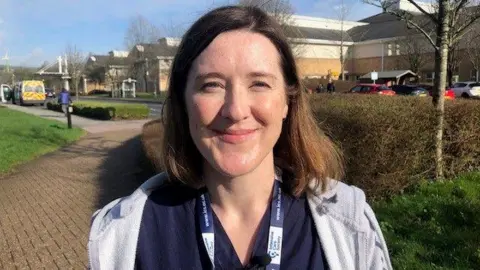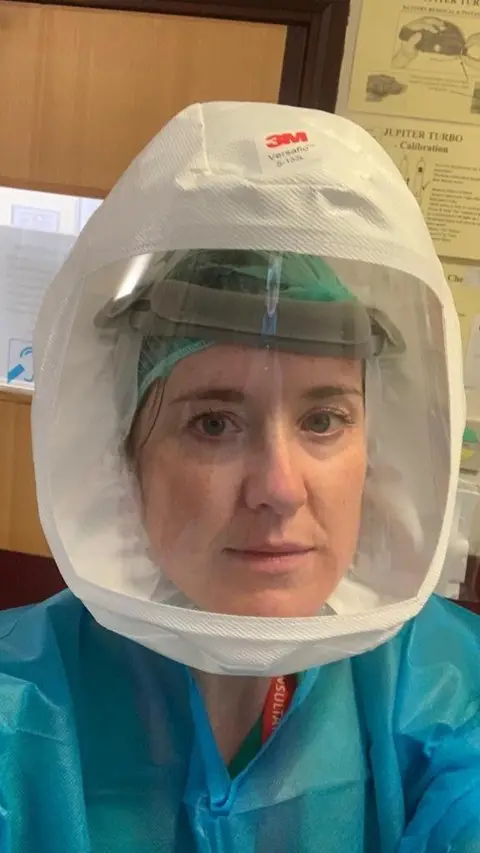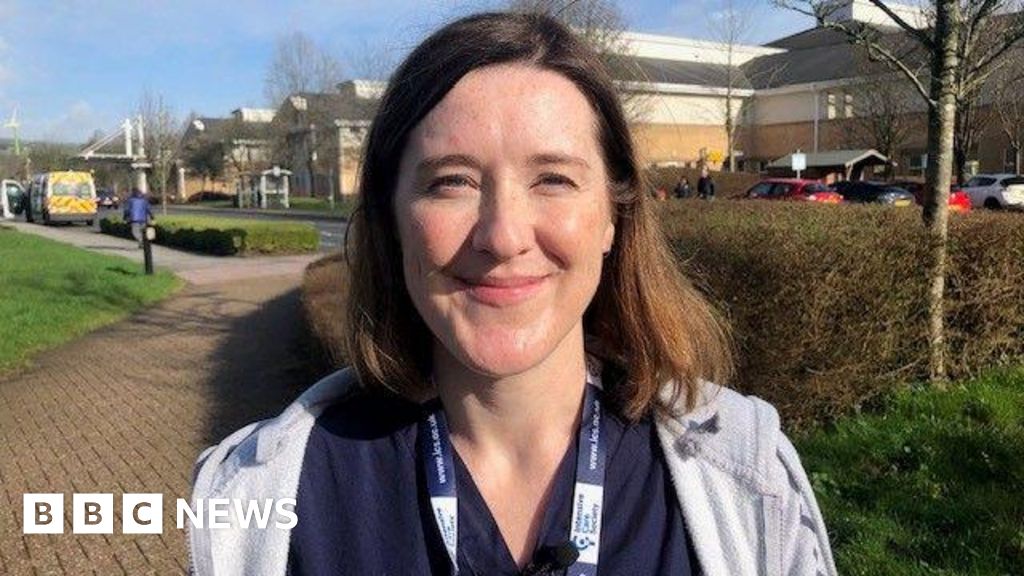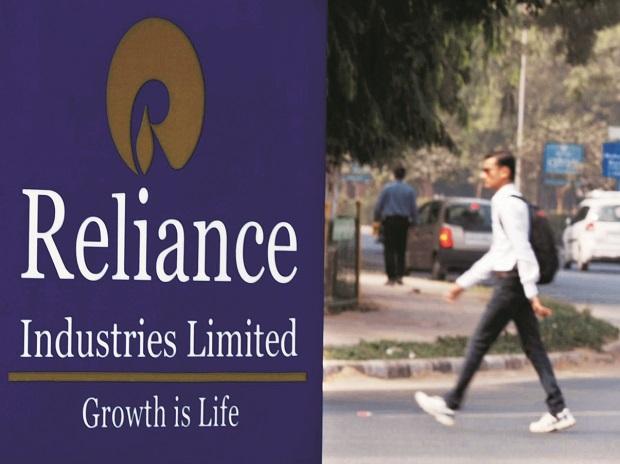 BBC
BBCA doctor at one of Wales’ hospitals hardest hit by Covid described seeing families “decimated” by the virus.
Dr Ceri Lynch worked at the Royal Glamorgan Hospital near Llantrisant, and said she tries not to think too much about the time.
But the memories that hurt most are about people dying with their family members unable to be there.
The impact of the pandemic on NHS staff such as Dr Lynch will be under the spotlight as the UK Covid-19 Inquiry resumes its hearings in London on Monday.
Part three of the inquiry is looking specifically at the effect on the NHS in the four UK nations.
“I try not to think about it if I’m honest – it was a very unpleasant and stressful time for everybody,” she said.
“We were seeing entire families decimated by Covid, several members of the same family coming into our unit and dying.
“It was heart-breaking.”
Talking about people dying alone with no loved-ones, she added: “That felt so wrong at the time, and it feels wrong now looking back.”
 Dr Ceri Lynch
Dr Ceri LynchDr Lynch believes her own critical care department, along with others, were close to becoming overwhelmed at certain points.
The entire pandemic left staff exhausted, she said.
“We had to try and be the family’s representatives and look after the patient, pass on messages and be there when they died,” Dr Lynch explained.
“Often we were communicating via tablets and iPads, and that felt very wrong as well.
“It felt like we were live streaming somebody’s death.”
She added there has been little respite for staff since, as the pandemic caused an enormous growth in the number of patients waiting for planned treatments.
“We’re all involved in the effort to catch-up with the waiting lists,” she said.
“Patients are more complicated now because they’ve waited longer for surgery and people are presenting later with other conditions.
“There’s also long Covid which has affected a lot of the community and staff.”
Part three of the inquiry will examine issues, including:
- the impact of Covid-19 on people’s experience of healthcare
- decision-making and leadership
- staffing levels and critical care capacity along with the use of field hospitals
- Quality of treatment for Covid-19 and non-Covid-19 patients, delays in treatment and waiting lists
- The impact on doctors, nurses and other healthcare staff
- Preventing the spread of Covid-19 within healthcare settings, including infection control, visiting rules and PPE
- Issues relating to long Covid including its diagnosis and treatment
What was the impact in Wales?
During Covid, we saw the number of infected patients in intensive care or on ventilation peaking at 164 in April 2020.
Beds had been freed up to cope, with 50 more patients in Welsh hospitals than usual capacity at the worst period.
In the year before Covid, there was an average of more than 4,100 pre-planned surgical operations carried out on in-patients every month.
During the peak of the first wave of the pandemic, this fell to fewer than 600 a month.
In-patient surgery dropped to 1,400 operations a month in the year of the pandemic.
Call for accountability
Groups representing the families of Covid-19 victims in Wales say, in the absence of a Welsh-specific Covid inquiry, this phase of the UK inquiry will need to look at what happened in Wales in detail.
“This healthcare module is so important to our families, it’s now the only mechanism we have of finding out what happened in Wales,” said Anna-Louise Marsh-Rees, the leader of Covid-19 Bereaved Families Cymru.
“We already know that with the right preparation, correct understanding of SARS2 and proper infection prevention and control, these deaths could have been prevented.
“In Module three we must find out why in Wales GPs wouldn’t take calls or see patients, why no-one knew all the Covid symptoms, why our loved ones were put on non-Covid wards where 20 plus patients and staff had Covid, why even when PPE was available, it wasn’t the right PPE.”
The families groups say they are looking for accountability from the Welsh government, Public Health Wales and NHS Wales.
Meanwhile, the Welsh NHS Confederation, which represents health boards, argued the pandemic’s after-effects continue to be felt.
“The Covid-19 pandemic had a huge impact on everyone, including health and care services, and still does,” said director Darren Hughes.
“The most obvious impact is the growth in the elective care backlog, due to the pause in non-urgent care during pandemic peaks,” he said.
“The pandemic also had a huge impact on staff, who were operating under sustained pressure for long periods of time. This is not just exhausting but can have a long-term effect on morale.
“The system is still working exceptionally hard to catch up… managing increasing incoming demand and financial constraints.”
Despite all the painful memories, Dr Lynch also looks back at the pandemic period with a certain degree of pride.
“I’m proud of how we all worked as a team… we worked hard, particularly in our hospital,” she said.
“I think we got people through that maybe might not have survived otherwise.
“I think we’ve learned a lot.”
Nevertheless, she is worried about ongoing pressures and believes a key question for the inquiry is whether the NHS is adequately funded.
“We’re still in a very bad situation now, because we haven’t got enough staff, enough resources… and I think we need investment,” she added.
“So my question would be, please invest in the health service.
“Or are we going to lose it?”
Note:- (Not all news on the site expresses the point of view of the site, but we transmit this news automatically and translate it through programmatic technology on the site and not from a human editor. The content is auto-generated from a syndicated feed.))




